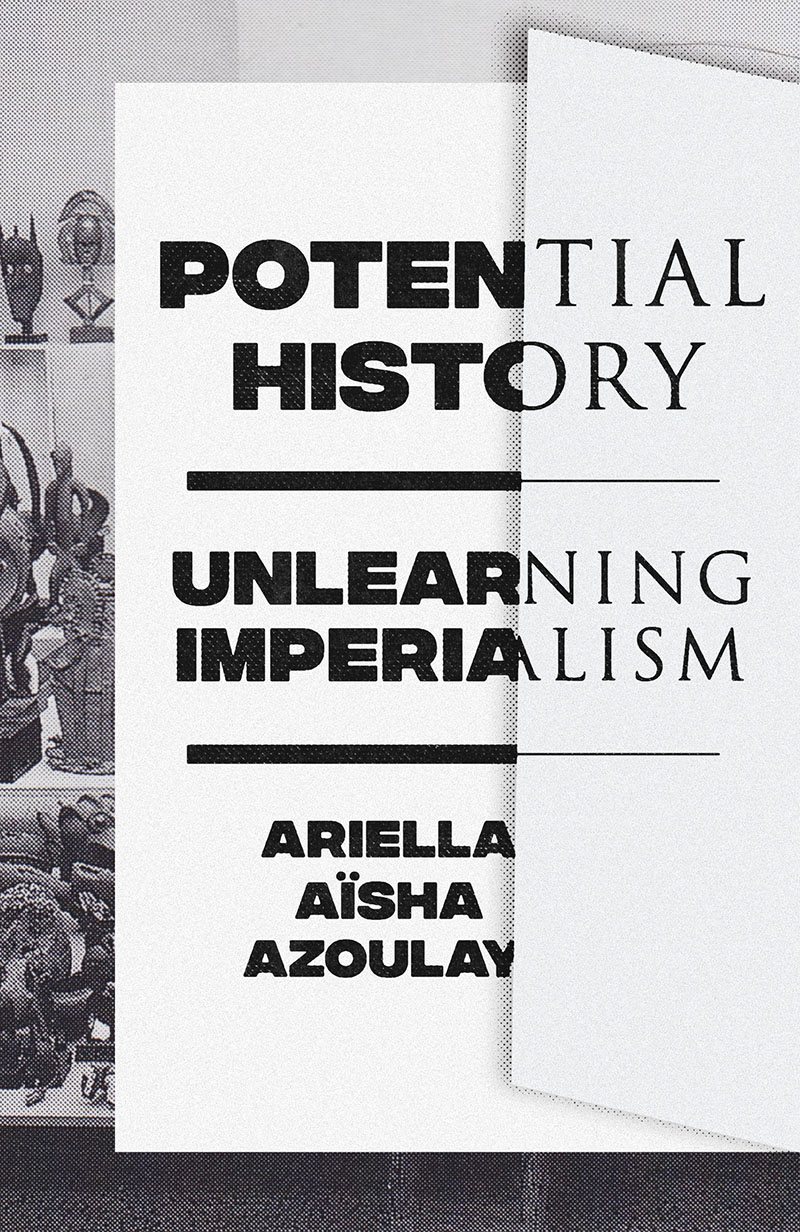Danny Snelson: Apocalypse Reliquary, 1984-2000 (2018)
Filed under artist publishing | Tags: · apocalypse, disaster, earth, history

“Inhabiting an Earth continuously subjected to catastrophic events, Apocalypse Reliquary presents a survey of artifacts left behind by every recorded global cataclysm from 1984 to the present. Objects on display range from the circuit boards of Y2K to ejecta from the collision with Halley’s Comet. The exhibition includes spaceships from the Pleiades photon belt, the radioactive remains of countless nuclear armageddons, relics from the Zeta Reticuli star system, and a wide array of artifacts delivered by dozens of religious raptures.
Each entry in the Apocalypse Reliquary is inscribed within the ongoing disaster of the present. Organized chronologically, the catalogue begins in 1984, immediately following the collapse of the planet under the strain of the population bomb. The reliquary will continue to annotate the ruins of global annihilation until a final apocalyptic event renders all recording impossible.”
The book was produced on the occasion of Exhibition Library and first presented at an exhibition at the Seoul Museum of Art.
Publisher Monoskop, Amsterdam, and Mediabus, Seoul, 2018
[133] pages
PDF (82 MB)
See also follow-up to the project: Full Bleed: A Mourning Letter for the Printed Page (2019).
Comment (0)Ariella Aïsha Azoulay: Potential History: Unlearning Imperialism (2019)
Filed under book | Tags: · archive, art, care, colonialism, commons, history, human rights, imperialism, israel, museum, palestine, photography, politics, sovereignty, strike, theory, violence, world

“A passionately urgent call for all of us to unlearn imperialism and repair the violent world we share
In this theoretical tour-de-force, renowned scholar Ariella Aïsha Azoulay calls on us to recognize the imperial foundations of knowledge and to refuse its strictures and its many violences.
Azoulay argues that the institutions that make our world, from archives and museums to ideas of sovereignty and human rights to history itself, are all dependent on imperial modes of thinking. Imperialism has segmented populations into differentially governed groups, continually emphasized the possibility of progress while it tries to destroy what came before, and voraciously seeks out the new by sealing the past away in dusty archival boxes and the glass vitrines of museums.
By practicing what she calls potential history, Azoulay argues that we can still refuse the original imperial violence that shattered communities, lives, and worlds, from native peoples in the Americas at the moment of conquest to the Congo ruled by Belgium’s brutal King Léopold II, from dispossessed Palestinians in 1948 to displaced refugees in our own day. In Potential History, Azoulay travels alongside historical companions—an old Palestinian man who refused to leave his village in 1948, an anonymous woman in war-ravaged Berlin, looted objects and documents torn from their worlds and now housed in archives and museums—to chart the ways imperialism has sought to order time, space, and politics.
Rather than looking for a new future, Azoulay calls upon us to rewind history and unlearn our imperial rights, to continue to refuse imperial violence by making present what was invented as ‘past’ and making the repair of torn worlds the substance of politics.”
Publisher Verso Books, London, 2019
ISBN 9781788735711, 1788735714
656 pages
Interviews with author: Jadaliyya (2019), Brad Evans (LA Review of Books, 2020), Sabrina Alli (Guernica, 2020).
Reviews: Ian Wallace (Artforum, 2020), Guy Mannes-Abbott (Third Text, 2020), Louis Rogers (review31, 2020), Stephen Sheehi (Hyperallergic, 2020), Luke Urbain (InVisible Culture, 2020), Lunettes Rouges (Le Monde blog, 2020, FR, part 2), Sascha Crasnow (Field, 2022).
Roundtable: Gil Hochberg, Zoé Samudzi, Joshua Simon, Robert Yerachmiel Sniderman (Protocols, 2020).
HTML (added on 2020-2-2)
EPUB (15 MB)
The Potosí Principle: How Can We Sing the Song of the Lord in an Alien Land? Colonial Image Production in the Global Economy (2010) [English/Spanish]
Filed under book, catalogue | Tags: · art history, colonialism, history, image, mining, painting

“Potosí is a Bolivian mining town, whose splendor even eclipsed that of London or Paris in the sixteenth century. The silver extracted there by forced laborers was instrumental in fuelling the development of early European capitalism. The dynamics of this economic colonialism spawned the production of images on a mass scale, not only in Spain, but also in the vice-royalty itself. The works of the “Andean Baroque” unveiled in The Potosí Principle attest to the fact that cultural hegemony is not a symbolic concept, but is, in fact, rooted in violence.
Contemporary artists have responded to these Baroque paintings by fashioning works of their own. The objective of this dialogue is to demonstrate the correlation between the function served by colonial painting and the function now assumed by the modern system of art in conferring legitimacy upon globalization’s new elites.”
With texts by Sonia Abián, Anna Artaker, Bartolomé Arzáns Orsúa y Vela, John Barker, Matthijs de Brujine, Thomas Campbell, Roberto Choque Canqui, Chto delat, Alice Creischer, Anthony Davies, Elvira Espejo, Marcelo Expósito, Harun Farocki, León Ferrari, Tom Flynn, Maria Galindo, Isaías Griñolo, Max Jorge Hinderer, Karl Marx School of the English Language, Peter Linebaugh, Gabriela Massuh, Eduardo Molinari, Fátima Olivarez, Plata de Refléxion sobre Politicas Culturales, Felipe Guaman Poma de Ayala, David Riff, Jorge Sanjinés, Andreas Siekmann, Luis Víctor Alemán Vargas, and Dmitry Vorobyev.
Edited by Alice Creischer, Max Jorge Hinderer, and Andreas Siekmann
Publisher Verlag der Buchhandlung Walther König, Cologne, 2010
ISBN 9783865609267, 3865609260
303 pages
via dbrvk
Exhibition (Reina Sofia)
Exhibition (HKW)
WorldCat
PDF (33 MB, updated on 2023-7-6)
Comments (2)
